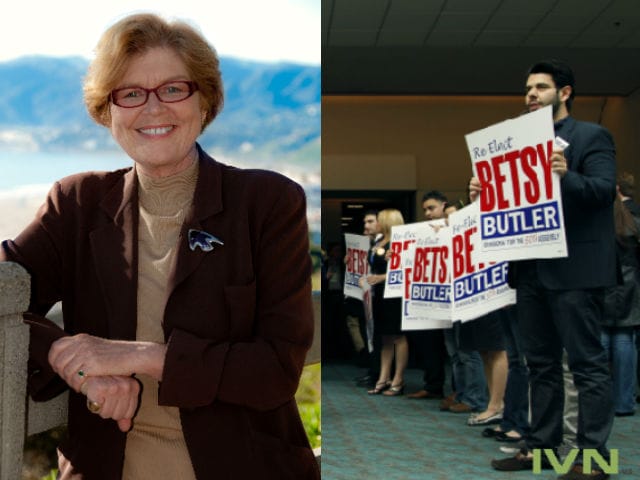Party Endorsements: "A Self-Perpetuating Machine of Incumbency"


Democratic delegates from across the state of California recently gathered in San Diego to participate in workshops, determine the party platform, and ultimately ratify pre-primary endorsements of statewide, State Assembly, State Senate, and Congressional candidates. While the pre-primary endorsement process is not a new practice for the Democratic Party, this is the first time these endorsement have occurred before the March filing deadline for candidates wanting to run. Regardless of the change in timeline, it appeared to be business as usual.
It comes as no surprise that the majority of the endorsed candidates this year were incumbents, meaning that on top of the structural advantages of name recognition, political experience, and campaign funding, these candidates will also receive special designation on the sample voters' ballot as the party's officially backed candidate.
As an establishment that prides itself on its commitment to electoral participation, why would the Democratic Party encourage and partake in the endorsement of candidates a month before the official filing period ends?
We asked candidate Torie Osborn, who is running against the California Democratic Party's endorsed incumbent Betsy Butler for the 50th Assembly District seat. Her response:
"State party endorsement is pretty much rigged. The bottom line is that there is a heavy emphasis on directing the endorsement wherever the main party establishment wants it to go."
While Assemblymember Betsy Butler received the official backing of the Democratic Party, Osborn has been working outside the establishment to receive the endorsements of Democratic clubs and members of the California Assembly and Congress. With 24% of the population Declined to State voters, 19% Republican, and the rest Democratic, Assembly District 50 is a safe seat for Democrats. Running from Malibu to Hollywood, it has one of the highest voting propensities and as Osborn notes, this is a district that "likes to make up their own mind." The number of DTS voters, tendency for political participation, and open mindedness of this district's voters is what makes it competitive for Osborn.
Moving forward without the Democratic endorsement, Osborn remains highly involved in the Democratic Party and its ideals, but admits that it has not been her pathway for running for office. Running a campaign of hope and ideas, fixated on government reform and job creation, she referred to the party's endorsement process as a "self perpetuating machine of incumbency."
When asked about the effect of the early endorsements on potential candidates who have not yet filed to run, she candidly responded:
"Truthfully, I see why people leave the Democratic Party. When you see how many resources and how much party leadership is spent on protecting incumbents, regardless of the their political view, it's pretty discouraging."
Even as a member of the Democratic Party, she finds fault in the backwards practice of early endorsements and sympathizes with the Independent candidates who have since been shut out of the election process. And while Osborn has not been discouraged, third-party candidates and independents already up against the party power machine, might not be as fortunate.


